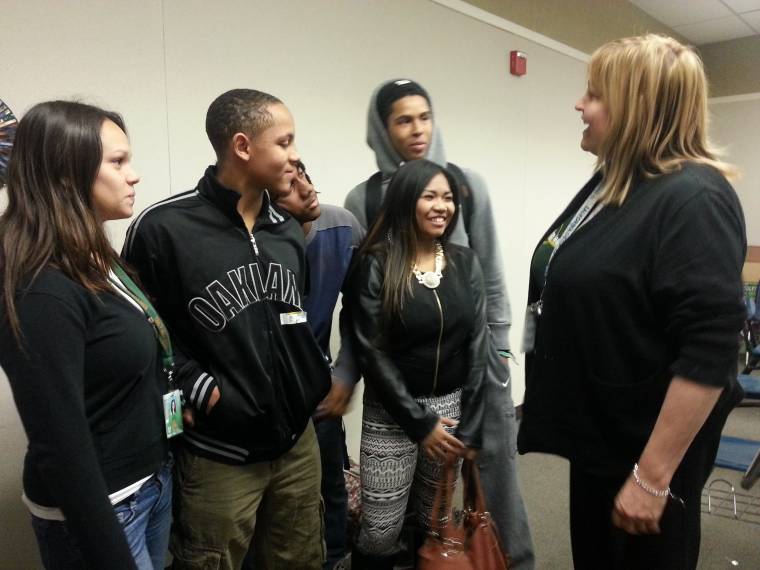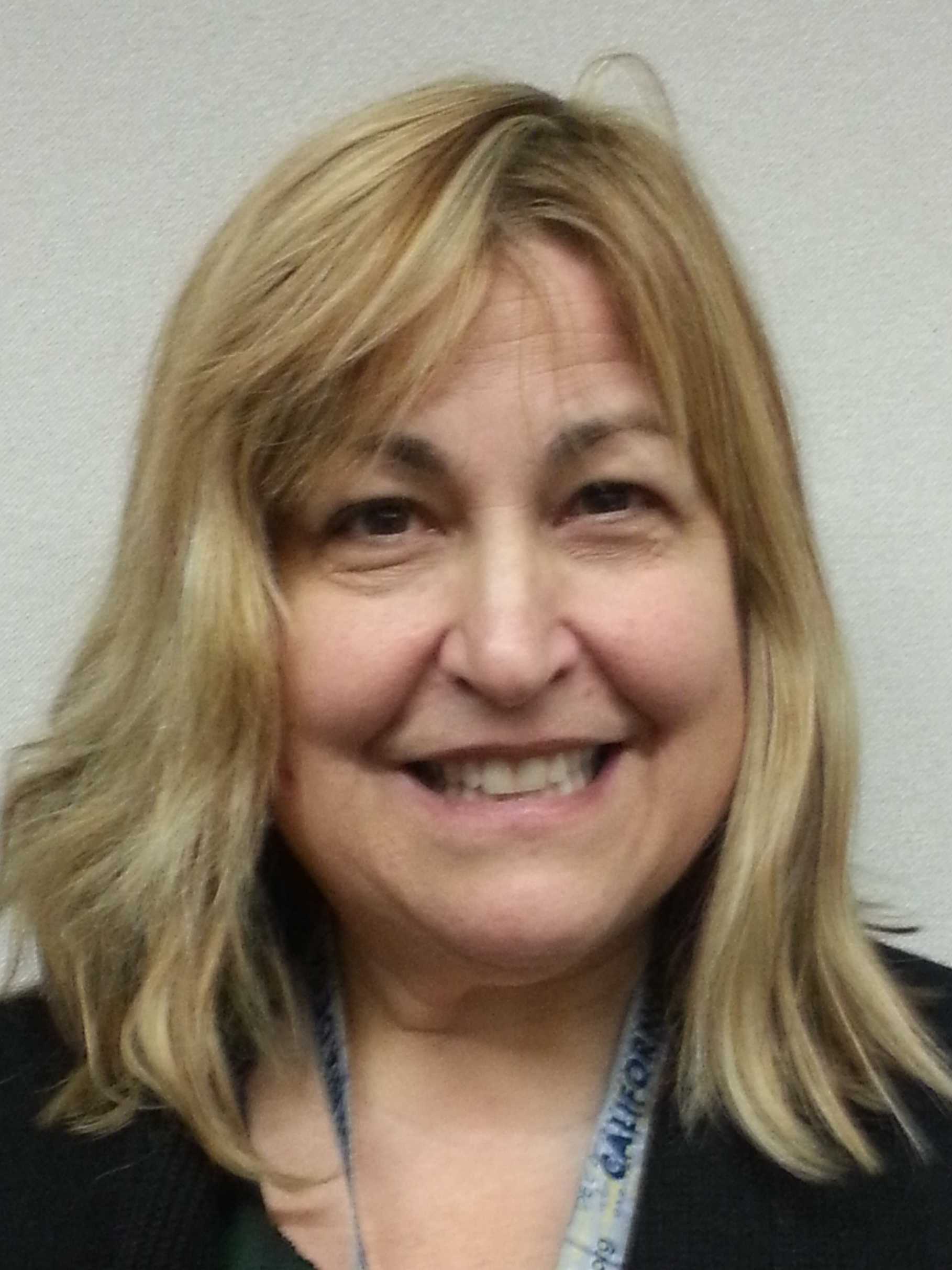Q + A: English teacher Carol Garske
December 11, 2013
Carol Garske’s love of words propelled her to want to teach English. Although this is her first year at Tracy High, she has previously taught English at the middle school and high school level elsewhere. Her infectious enthusiasm for the art of English brightens her classroom environment.
What is something quirky about you? “I’m always observing how color blends, how color interacts with texture. When I’m looking at people, I’m usually looking at texture and color. They think I’m thinking of their words but I’m actually thinking of the next art piece I’m going to create.”
What is a book you read that truly changed your life? Why was it so powerful? “The Last Man Alive and it made me realize how much in life can be disposed of, and what’s truly valuable. It made me appreciate what’s really important in life.”
What do you love most about your job? “It changes every day. My students come in with different emotions and feelings and curiosities. My subject matter is constantly evolving as I experience life.”
If you had a free weekend, how would you spend it? “In my arts studio. I do mixed media collages, wall art, cards and gift baskets. I teach workshops on a variety of techniques using ink and canvas or custom illustrations.”
What is your main goal right now? “My main goal is to master some new technologies in my art studio. At Tracy High School my goal is to get to know the students. I’m new here. In addition to getting to know students, it’s also adjusting expectations. Some of my expectations sometimes are too high so sometimes I’m disappointed. I’m disappointed because I expect more from people. That’s my shortcoming, maybe I need to accept people at where they are.”
What makes you happy? “Creating. I don’t say anything specifically because it could be creating a lesson, a finished art piece, a conversation, it could be creating a day.”
What is your philosophy on life? How did you develop it? “I really developed my philosophy from the Transcendentalist point of view: live life fully, see not just the concrete world but look at it from a spiritual point of view. My spiritual point of view is centered on Christianity. You can’t have passion without a soul.”
What motivates you? “Fun. I think ‘fun’ really translates to creating and maintaining a positive classroom environment which is difficult sometimes because kids have a lot going on in their lives. To relate to students I try to present materials in a variety of ways. I try to incorporate my travel background and appreciation for cultural celebrations to the stories we read and articles we write.”
What are two adjectives you would use to describe yourself? “Spontaneous and creative”
What made you want to teach English in particular? “I love words.”
If you could talk to any person for an hour, who would it be? What would you talk about? “I think I would ask Emily Dickinson why she lived in such secrecy. I would also talk to Christ. I would talk about His word.”
What is the most daring thing you have ever done? “I went to Paris for the weekend. It wasn’t planned the three days prior that I went. I was in my thirties. Also, I think circling this country by train by myself is pretty daring. I think that unless you have a respect for other people’s culture, you cannot really experience this world fully. Cultures are this kaleidoscope of everything we represent.”
What is something you wish everyone knew about? “I wish everybody knew about how culture influences thinking. I think there’s a lot of mistaken perceptions about why what we do what we do, especially if we’re not exposed to travel or people of different cultures. We should respect people and take into consideration where they came from because there are different norms for every culture and if you don’t know what the cultural norms are, you really don’t know where they’re coming from. When I was teaching high school in San Jose, I had a student react very sadly to a paper I had written over and I didn’t know that the color red had such a negative image in his culture, or asking the student to look me in the eye. In some cultures, it’s not polite to look people in the eyes. You have to be aware of cultural differences in order to really respect people.”
What is one statement you know to be true? “Expect the unexpected.”


